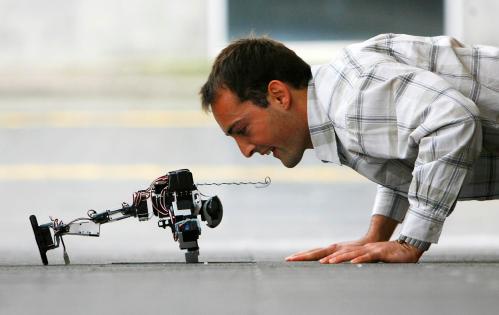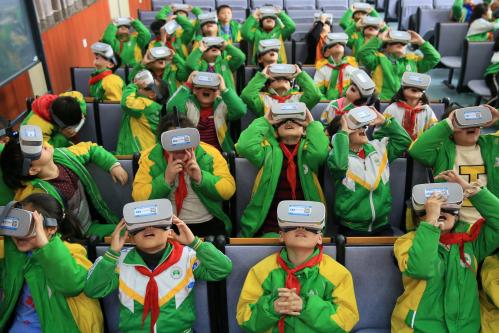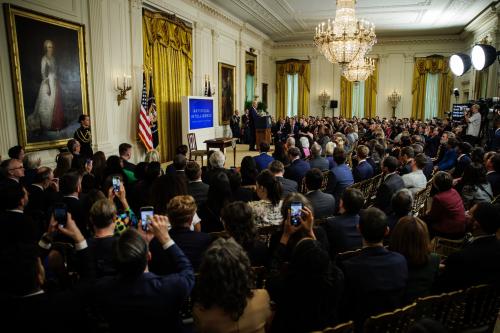This post is part of series by Brookings experts on Trump’s 1st State of the Union.
Having borne witness to many of the major events of the past 40 years—from the unfolding of the Cold War and the post-Cold War period, to wars in Iraq and Afghanistan and against the so-called Islamic State—my instincts tell me that the advent of artificial intelligence (AI) is set to be the most profoundly shaping influence of this century. Elsewhere, I’ve called AI a revolution in human affairs, as well as the next great technological race of our generation. This transformative technology will drive us into an entirely new security environment and will determine our ability to fight and win against foes with capabilities most people can only conceive of in sci-fi movies.
But this issue goes far beyond myopic conversations about weaponized robots, autonomous killing systems, or advanced cyber-attacks. From self-driving cars to critical advances in medicine such as CT scan analysis or precision surgery, AI will have the ability to reshape nearly every aspect of our day-to-day lives. On a larger scale, AI and the related technologies it will generate will have the capacity to not only drastically augment any nation-state’s core economic and security capabilities, but rapidly redistribute the division of power in the world. Woe be unto any nation that falls behind in this race. For the moment, the United States is the center of gravity for AI innovation and application, but I fear without the unqualified and unambiguous support of this “America First” president and his administration, we will cede the field to other competitors, chief among them China.
And so, as this week we hear President Trump’s first State of the Union speech, we learn that he intends to address five principal areas: jobs and the economy, infrastructure, immigration, trade, and national security. What is evidently missing from this speech is the clarion call to develop the full potential of artificial intelligence, and to pursue all measures possible to preserve what I fear will be America’s fleeting predominance in this field. Here is the president’s chance to not only lay out his five priorities, but also bind them up in a clear national commitment to leverage this technology in a manner to achieve and surpass his goals. We’ve been here before, and such epic undertakings as the Manhattan Project, the Marshall Plan, and the space program will not have as great an individual or collective influence on America and the world as AI.
Just as the United States won the previous technological race by sending a man to the moon and inspiring the next generation of scientists in the process, we must again bring together the very best of our private, public, and social sectors to tackle this issue. The United States is blessed with a history of success, with public-private partnerships solving a wide variety of seemingly intractable challenges facing our nation. The U.S. government alone did not put a man on the moon, and with a private sector so comparatively advanced in the field of AI, there is a tremendous opportunity for Americans to once again unify around a shared national project, one that will define the competitiveness of America for the remainder of this century.
And unify we must, because as things currently stand, our government lacks the basic capacity to develop AI policy on the wide range of domestic, foreign, commercial, and security related matters and issues that will unequivocally shape events out to 2050 and well beyond. The government should be working to stimulate participation in the development and deployment of AI while also, in partnership with the private sector, providing the requisite oversight of it. They must also work together to navigate the immense implications this technology will have on our economy, in particular. The government should be spearheading efforts to support AI as a major economic driver, while also developing safeguards and sound policies to mitigate the unintended, negative consequences. If indeed, in the era of President Trump, we’re living in an environment of “America First,” one of the most important outcomes of that mantra must be America first in AI, which in the end will truly secure the state of the union.
John R. Allen is a member of the Board of Advisors of Amida Technology and on the Board of Directors of Spark Cognition. Both companies work in fields discussed in this piece.









Commentary
Trump’s 1st State of the Union: Artificial intelligence and the future of America
January 30, 2018